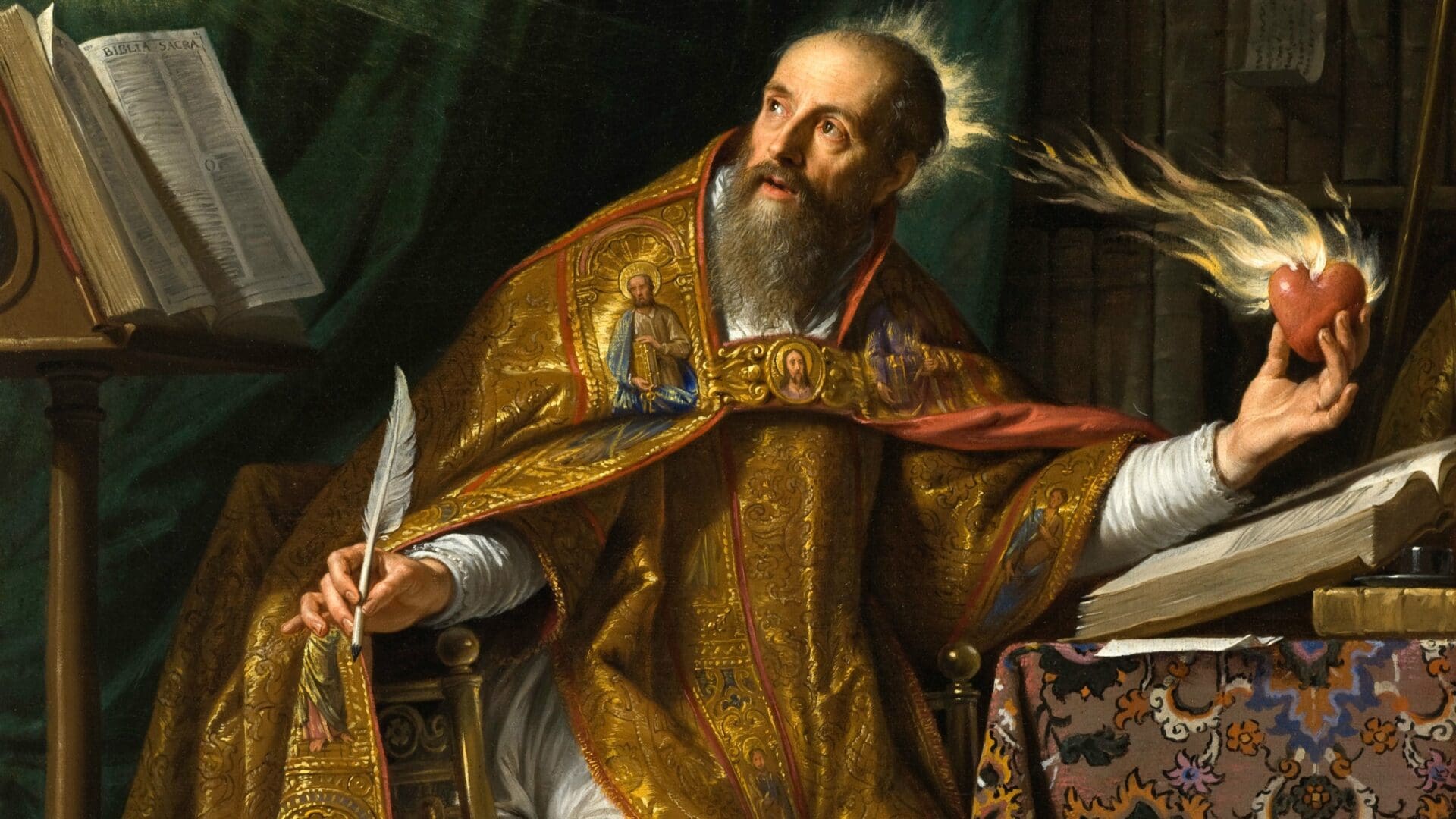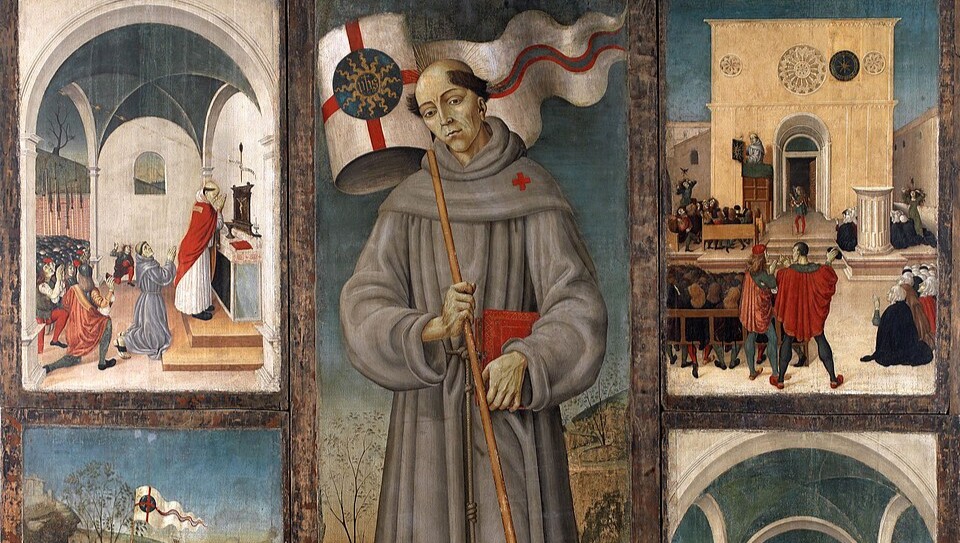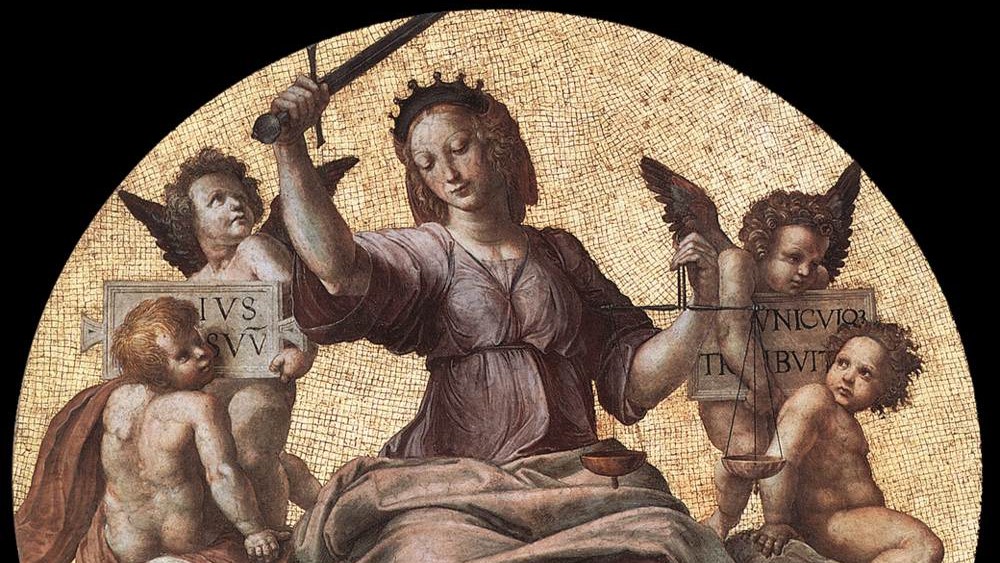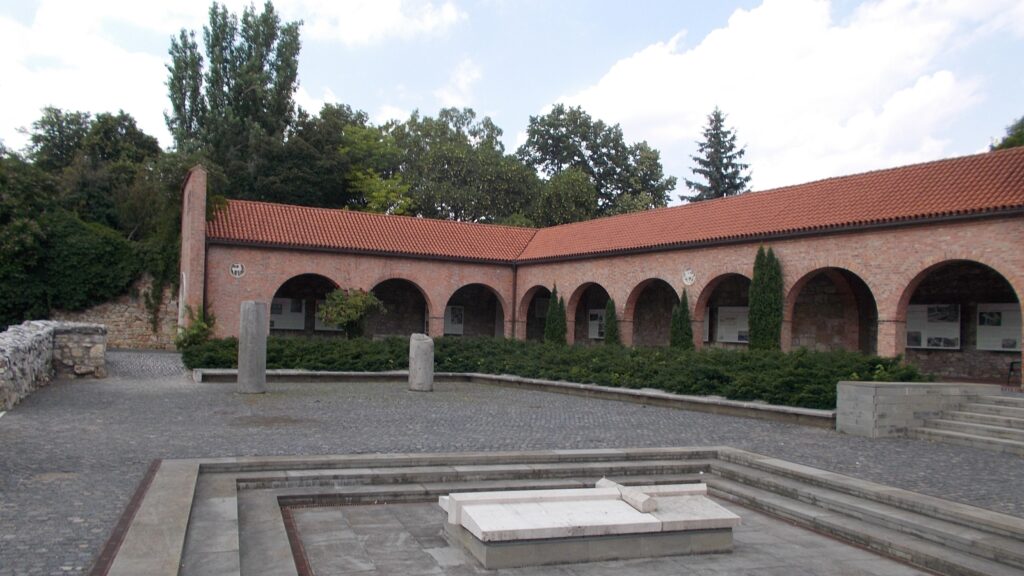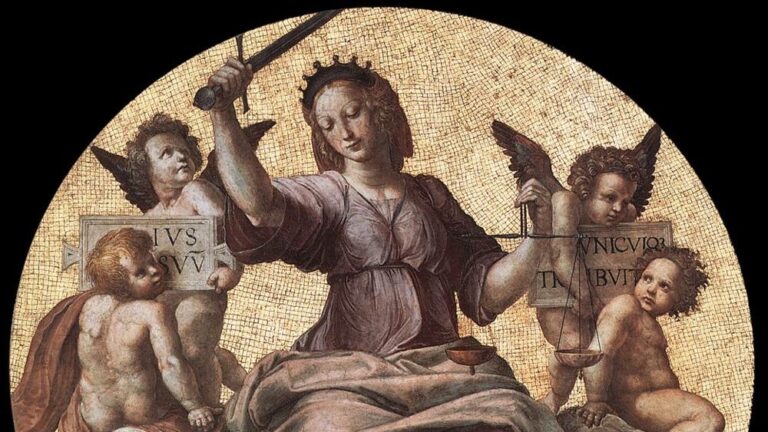It was widely believed in the late Roman Empire that the reason Rome had been plagued with catastrophes was due to their disloyalty to their old Pagan Gods. As a rebuttal to this widely shared point of view, Saint Augustine of Hippo dedicated a chapter of his seminal work, City of God, to demonstrating that the old deities offered no code of behaviour to their followers. Hence, it was the pagans themselves who held full responsibility for the disasters that befell Rome.
The City of God, or ‘De civitate Dei contra paganos’, which translates as ‘The City of God against the heathens’, is a theological work written in the 5th century by Saint Augustine of Hippo. Saint Augustine is a saint in both Western and Eastern Christianity and one of the Church Fathers. The content of the book is foundational to the entire Western thought as a whole, underpinning all subsequent philosophical works produced on the continent. The manuscript explores the relationship between the Earthly City, which is the world of humans and the Heavenly City, heaven itself. Saint Augustine also examines into a series of theological questions—the responses he gave later consolidated as church doctrines. Critically, the work also addresses the then popular belief that Christianity was the underlying cause of Rome’s disintegration—Saint Augustine proves that in actuality, Christianity is the reason for Rome’s success, not its ultimate destruction.
Augustine criticized the old Roman pagan divinities, which he regarded to be as nothing but malicious demons, for failing to provide the Romans with an ethical code:
‘In the first place, why did these gods refuse to take the trouble to prevent the degeneration of morality?… why did they give their worshippers no laws to help them to a good way of life? It would certainly have been fitting for the gods to be concerned about the conduct of those who concern themselves with their worship.’
According to Augustine, the moral system that was given to humans and was exemplified by the Divine is more vital and stronger than those of secular origin. Using Augustine’s words,
‘man is easily corrupted; and the gods’ examples influence them more than the argument of man’.
The failure to set an example to follow on the part of Rome’s old gods also points out the inconsistency in the views of those who criticized Christianity—how could the promotion of obscenities and morally abhorrent deeds in pagan rituals ensure the unity of a society, he asks.
It is at this point that Saint Augustine proceeds with his intellectual onslaught:
‘”But’’, it will be replied “a man’s wickedness depends on his own free will”. Who would deny this? Nevertheless, it was the responsibility of the gods, as counsellors, not to conceal the instructions for a good life from the people who worshipped them. They should have presented and proclaimed them plainly; they should have confronted and convicted sinners by their prophets, threatening punishments to evildoers and promising rewards to those of upright life. Yet the temples of these gods never rang with any such clearly and empirically uttered exhortations.’
For those who were brought up in the Western civilization, even if they are not religious, having been exposed to Christianity from an early age, it is self evident that any religion must inherently have a distinct ethical framework built into it, which has the power to ensure societal cohesion and its very functioning. Embedded ethical frameworks have not always been part of religions, as demonstrated by Augustine’s 5th century analysis. Augustine’s inability to find an ethical framework in the old Roman beliefs can hardly be justified with his lack of knowledge of the matter—before converting to Christianity, he himself was heavily influenced by the pagan environment and upheld the beliefs of Manicheanism. Thus, he was well-aware of the religious practices of his time.
Saint Augustine’s work from more than one and a half thousands years ago remains relevant to this day. Contrary to the once-prevailing expectations, religions have endured into the new millennium. Albeit the decline of Rome can hardly be attributed solely to moral decay, and other historical events also hold significance, it is undeniable that society cannot operate effectively without a solid moral foundation.
Read more:

